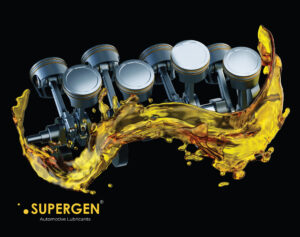Introduction:
Choosing the right engine oil is a critical aspect of motorcycle maintenance, as it directly influences the performance, longevity, and overall health of the engine. However, there are instances where the wrong oil might find its way into the engine, either due to misinformation, oversight, or sheer lack of awareness. In this comprehensive blog, we’ll delve into the potential consequences of using the wrong oil and why precision in oil selection is paramount.
Understanding Engine Oil Specifications:
Engine oils are not created equal, and each motorcycle engine has specific requirements outlined by the manufacturer. These specifications include viscosity grade, oil type (conventional, synthetic, or semi-synthetic), and performance ratings set by organizations like the Society of Automotive Engineers (SAE) and the American Petroleum Institute (API). Using oil that does not meet these specifications can have adverse effects on your engine, some of them are mentioned below:
Viscosity Matters:
One of the most crucial aspects of engine oil selection is viscosity, which indicates the oil’s flow characteristics at different temperatures. Using oil with the wrong viscosity can lead to inadequate lubrication, especially during cold starts or under high operating temperatures. This can result in increased friction, wear, and potential damage to engine components.
Effects on Lubrication:
Engine oil serves as a protective barrier between moving parts, preventing metal-to-metal contact and reducing friction. Using the wrong oil may compromise this lubricating function, leading to accelerated wear and tear on critical engine components such as pistons, cylinders, and bearings. Over time, this can result in reduced engine efficiency and performance.
Heat Dissipation and Cooling:
Engine oil also plays a crucial role in dissipating heat generated during combustion. Using an oil with incorrect heat dissipation properties can lead to elevated operating temperatures, increasing the risk of overheating. Overheating can cause thermal breakdown of the oil, leading to a loss of viscosity and reduced lubricating effectiveness.
Seal and Gasket Compatibility:
Different oils may have varying effects on engine seals and gaskets. The wrong oil can lead to seal deterioration, leaks, and potential damage to the engine’s internal components. It’s essential to use oil that is compatible with the materials used in your motorcycle’s engine seals.
Fuel Efficiency and Emissions:
The use of the wrong oil can also impact fuel efficiency and emissions. Engine oils formulated with incorrect additives or outside the manufacturer’s specifications may not provide optimal combustion efficiency, leading to increased fuel consumption and higher emissions.
Voiding Warranty and Long-Term Damage:
Using the wrong oil can void the manufacturer’s warranty, as it constitutes a deviation from recommended maintenance practices. Additionally, long-term use of incorrect oil can result in cumulative damage that may not be immediately apparent but could lead to significant engine issues over time.
Potential Engine Deposits and Sludge:
The use of improper engine oil may contribute to the formation of deposits and sludge within the engine. Some oils come with specific additives designed to prevent the buildup of deposits. Using an oil without these additives or with incompatible formulations can lead to the accumulation of harmful deposits, affecting engine efficiency and potentially causing blockages in crucial oil passages.
Transmission and Wet Clutch Considerations:
For motorcycles with a wet clutch system, the choice of oil is critical as the same oil lubricates both the engine and the clutch. Using the wrong oil may compromise the functionality of the wet clutch, leading to slipping or inadequate engagement. It is essential to use oils specifically formulated for motorcycles with wet clutches to ensure optimal performance.
Environmental Impact:
The disposal of used engine oil is subject to environmental regulations. Using the wrong oil may introduce contaminants that can have adverse effects on the environment. It is important to follow proper disposal procedures and, more importantly, use the right oil to minimize environmental impact.
Professional Guidance and Educating Riders:
While some motorcycle enthusiasts may perform their own maintenance, it is crucial to acknowledge the complexity of engine oil selection. Seeking professional guidance and utilizing the expertise of qualified mechanics can help ensure the right oil is chosen, avoiding common pitfalls associated with DIY maintenance. To prevent the inadvertent use of the wrong oil, educating motorcycle riders about the significance of proper oil selection is paramount. Manufacturer guidelines, user manuals, and informational resources can empower riders to make informed decisions about the maintenance of their motorcycles.
Conclusion:
In conclusion, the consequences of using the wrong engine oil can be far-reaching and detrimental to your motorcycle’s engine health. It’s crucial to adhere to the manufacturer’s recommendations regarding oil type, viscosity, and performance specifications. Regularly check your motorcycle’s owner’s manual for guidance and consult with professionals if in doubt. Precision in oil selection is a small investment that can yield significant returns in terms of engine longevity, performance, and overall riding satisfaction.








